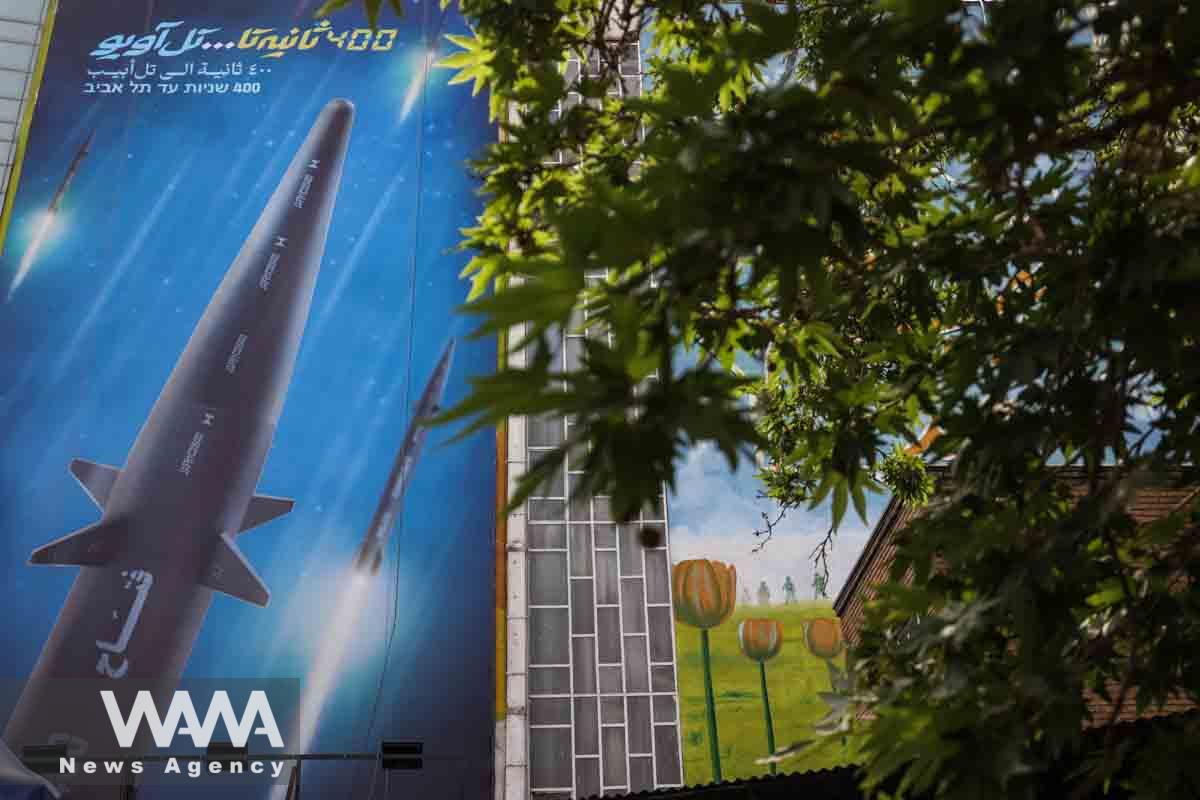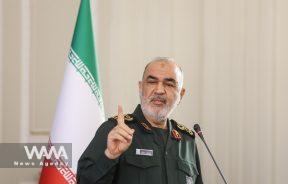Israel Attacking Iran?!
WANA (Dec 24) – Hakan Fidan, Turkey’s Foreign Minister, recently stated in an interview with France 24 that an Israeli attack on Iran is a possibility. However, he also emphasized that Iran does not appear willing to initiate a large-scale war. These remarks, alongside analyses from some American experts, have reignited discussions around the potential for an Israeli strike on Iran. But is this scenario realistic, or just another media ploy?
Netanyahu and the Trump Opportunity
Analysts believe that Israeli Prime Minister Benjamin Netanyahu might leverage current circumstances in Syria and the potential return of Donald Trump to the White House to advance his agenda against Iran.

Iranians step on an Israeli flag and a banner with pictures of U.S. President Joe Biden and Israel’s Prime Minister Benjamin Netanyahu and former U.S. President Donald Trump, during the 45th anniversary of the U.S. expulsion from Iran, in Tehran, Iran November 3, 2024. Majid Asgaripour/WANA (West Asia News Agency)
History, however, has shown that Israel is unlikely to engage in a direct war with Iran without the explicit support and green light from the United States. Michael Maloof, a former Pentagon national security analyst, stated, “Israel cannot initiate a large-scale attack on Iran without direct military and political backing from the U.S.”
This perspective comes as Trump’s pro-Israel stance could embolden Netanyahu to pursue more aggressive actions. But is the current geopolitical climate truly favorable for Israel?

From Israel’s Shelters to Tehran’s Rooftops: Reflections on a Failed Attack
WANA (Oct 26) – In the early hours of Saturday, October 27, Israel launched actions targeting military facilities in Iran, which an Israeli military spokesperson described as a response to recent Iranian actions against Israel. According to Daniel Hagari, this was in retaliation for what Israel terms “Iranian threats.” Around 2:30 a.m., explosions were […]
The Potential Costs of a Large-Scale War
While Iran has made it clear that it seeks to avoid a major war, this does not imply a lack of defensive capability. The Islamic Republic has previously demonstrated its ability to respond to Israeli threats. Iran’s precision missile strikes deep into Israeli-occupied territories, branded as operations like the True Promise , exemplify its capabilities.
A conflict with Iran extends beyond military dimensions, carrying profound political, economic, and geopolitical ramifications. While direct attacks on Iranian facilities may cause damage, at what cost?

A billboard with a photo of a new hypersonic ballistic missile called “Fattah” and with text reading “400 seconds to Tel Aviv” is seen on a building in Tehran, Iran June 8, 2023. Majid Asgaripour/WANA (West Asia News Agency)
Can Israel withstand Iran’s missile strikes, particularly its precision-guided systems? What about the safety of U.S. bases in the region?
In 2019, retired General David Petraeus warned, “An attack on Iran would merely mark the beginning of an unending chain of conflicts that could engulf the entire Middle East.”
Additionally, the idea of neutralizing Iran’s nuclear capabilities remains uncertain. Many experts argue that a limited strike is unlikely to halt Iran’s nuclear program.

Revisiting the Nuclear Fatwa of Iran’s Supreme Leader: Change or Adaptation?
WANA (Nov 09) – The issue of nuclear weapons and the stance of the Islamic Republic of Iran on this subject remains one of the most contentious topics in international politics. A key element of Iran’s policy is rooted in a fatwa (religious decree) by Supreme Leader Ayatollah Khamenei, which prohibits the use and development […]
Iran has repeatedly showcased its high deterrent power. The 2020 missile strikes on Ain al-Asad airbase are a stark testament to this. At the time, a senior commander of the IRGC remarked, “That was merely a minor slap. A more serious threat will elicit a far greater response.”
A War Unlikely, but Real Tensions
Some analysts argue that Israel’s threats are largely theatrical, aiming to intimidate Iran or create a deterrent effect. Yet, history shows that Iran often responds to such posturing with unexpected measures. The so-called True Promise 3, referring to potential Iranian operations at an unspecified time, could drastically alter regional dynamics.
Although a full-scale war between Iran and Israel seems unlikely at present, the possibility of limited skirmishes cannot be ruled out. War might be a theoretical scenario, but its costs have consistently served as a strong deterrent.
Economic, political, and military considerations pose significant obstacles for both sides. However, one undeniable fact remains: regional developments demonstrate Iran’s pivotal role in the balance of power. Any action against Iran is likely to have severe consequences for all regional and international actors involved.














